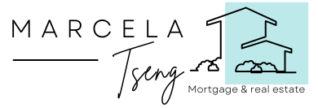
Last update: Dec 17, 2022
An FHA loan is a government-backed mortgage loan insured by the Federal Housing Administration (FHA) and issued by a bank or other lender that is approved by the FHA agency.
FHA loans require lower minimum credit scores and down payments than conventional loans, this means you might be able to get an FHA loan with lower credit scores, debts, or even with a bankruptcy or other financial issue in your credit record. FHA loan is very popular among first-time homebuyers.
General characteristics for FHA loans
Credit Score:
500 to 579 credit score, need to have a 10% downpayment;
580+ credit score can apply with a 3.5% downpayment.
Income:
Employment history: minimum 2 years.
Verifiable income via pay stubs, tax returns, and bank statements.
Property :
Must be appraised by an FHA-approved appraiser
Meet HUD guidelines.
Primary residence only, can’t be for investment property or second home
Must move within 60 days after closing.
DTI ratios
Front-end ratio ( monthly mortgage payments): less than 31% of gross monthly income.
Back-end ratio ( mortgage and all monthly debt payments): no more than 43% -50%.
Bankruptcy: wait one or two years before applying for an FHA loan.
Foreclosure, wait three years to apply for FHA loans. ( some lenders may offer less waiting time)
Mortgage Insurance Premium ( MIP)
If the downpayment is more than 10%, you pay the mortgage insurance premium for 11 years, otherwise, you pay mortgage insurance for the life of an FHA loan.
Need to pay two types of mortgage insurance:
– Upfront mortgage premium: normally is 1.75% of your base loan amount, it will be included in the closing cost.
– Annual mortgage insurance premium: Approximately 0.45% to 1.05% of the base loan amount. Depends on your loan-to-value ( LTV), total mortgage amount, and the size of your down payment.
Loan Amount:
Every year FHA loan limits change according to home price movement.
For 2022, single-family FHA loan limits are $420,680; for high-cost areas, the limits are $970,800.
Starting January 1, 2023, the new FHA loan limit is $472,030 for a single -family home in most part of the country. In high-cost areas, the limits is $1,089,300.
Interest Rate:
FHA loan’s interest can be comparative compared to conventional loans because this is a government-insured loan, which decreases the loan risk, so the lender could allow to offer you a lower rate.
Pros and Cons of FHA loans
Pros
Lower credit score: if you haven’t established much of a credit history or you’ve encountered some issues in the past, with a 580 credit score, you can apply for FHA loans.
Lower down payment: FHA loans offer lower down payment options. With a 580 credit score, you can make as low as a 3.5% down payment; with a 500 to 579 credit score, you can apply with a 10% of downpayment.
A good option to stop renting: FHA loans make buying a home much easier, and you can start building equity sooner.
Cons
Mortgage insurance: Since FHA’s required credit score is lower, means the chance for borrowers to default is higher, in order to protect lenders from the loss, borrowers need to pay mortgage insurance. Upfront insurance premiums can be included in your closing costs, but the annual premiums will be divided into 12 installments and included in your monthly mortgage bill.
If your downpayment is lower than 10%, you need to pay an annual insurance premium for the entire life of the loan. This is different from conventional loans, in which you can stop paying mortgage insurance once your home equity reaches 20%.
FHA-approved property: Applying for FHA loans, the property needs to meet some requirements. The most important is the price, which can’t exceed a certain amount based on the location.
Primary residence only: you must live in the FHA loan property, can’t be a second home, vacation home, or investment property.
Higher APR: FHA loans’ interest rates may be lower than conventional loans, but sometimes the APR rate is higher than conventional loans. Because the total cost of borrowing can be higher than conventional loans.
May not be seller’s best choice: In a competitive market, sellers usually prefer conventional loan buyers over FHA loan buyers.
Who are the candidates?
Borrowers with a low credit score
Borrowers that don’t have a large down payment
Borrowers with high debt-to-income (DTI) ratios
First-time home buyers
If you have a decent credit score and not much money saved for a down payment, an FHA loan can help you buy the house. With a 580 credit score and a 3.5% down payment, it’s enough to apply for FHA loans.
If you have a good credit score, even if you don’t have a 20% down payment, please try to apply for a conventional loan first. The conventional loan still should be your first choice.
If your problem is having a lower credit score, the solution can be having someone co-sign the loan with you. If your spouse or partner has a good credit score, let your spouse or partner applies for a conventional loan alone, so your low credit score won’t impact your approval chance.
The bottom line is, even if the FHA loan requirement has a lower standard, overall borrowing cost can be more expensive than a conventional loan. This is a good option for people with no-so-good credit scores and lowers down payment saved, but with stable income, and also want to stop paying rent and build up equity.






